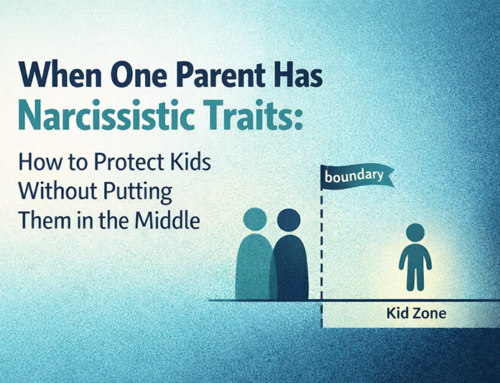What Role Does Generational Trauma Play In Narcissistic Relationships?

By Brenda Stephens, Licensed Professional Clinical Counselor
Step into the intricate web of generational trauma and narcissistic relationships. Brace yourself as we delve into the hidden layers that shape and influence the dynamics of these complex emotional landscapes.
Unpacking Generational Pain
Generational trauma is like an invisible thread woven through the fabric of family history. It carries the echoes of past suffering, unfelt emotions, and unspoken truths. In narcissistic relationships, this deep-rooted pain often manifests as a cycle of dysfunction, passed down from one generation to the next. Understanding the impact of generational trauma is crucial in untangling the intricate knots of toxic relational patterns.
The pain of the past can cast a long shadow over present relationships, shaping the way individuals perceive themselves and others. Patterns of neglect, abuse, or emotional absence experienced in childhood can resurface in adult relationships, fueling a vicious cycle of trauma repetition. By shining a light on this shadowy heritage, individuals can begin to break free from the chains of generational trauma and pave the way for healthier connections.
Breaking the Cycle of Family Secrets
Family secrets are the silent architects of generational trauma, shrouding past hurts in a veil of silence and shame. In narcissistic relationships, these buried truths often fester beneath the surface, feeding a culture of deceit and emotional manipulation. By confronting and airing out family secrets, individuals can release the grip of the past and stop the cycle of hidden pain from poisoning present relationships.
The power of transparency and vulnerability in dismantling family secrets cannot be overstated. Opening up about the skeletons in the familial closet paves the way for healing and transformation, fostering an environment where honesty and authenticity can flourish. Breaking the cycle of secrecy is a courageous step toward building relationships based on trust, respect, and emotional integrity.
By shedding light on the shadows of the past, individuals can reclaim their narrative and rewrite the story of their family’s legacy. Honesty becomes the antidote to secrecy, paving the way for healing, understanding, and reconciliation. Breaking the chains of family secrets is an act of liberation, freeing future generations from the burden of unspoken truths.
The Impact of Enabling Toxic Behavior
Enabling toxic behavior is like watering the seeds of dysfunction, allowing them to take root and flourish within relationships. In the context of generational trauma and narcissistic dynamics, enabling behavior perpetuates cycles of abuse, manipulation, and emotional neglect. By turning a blind eye to toxic patterns, individuals inadvertently reinforce destructive cycles that echo through generations.
The line between supporting a loved one and enabling harmful behavior can be thin but crucial. Recognizing the signs of toxic dynamics and setting healthy boundaries is essential in breaking the chain of enablement. By refusing to be complicit in destructive patterns, individuals can disrupt the cycle of dysfunction and pave the way for genuine healing and growth.
Healing from Inter-Generational Trauma
Healing from inter-generational trauma is a profound journey of self-discovery and empowerment. By acknowledging the impact of past wounds and making a conscious effort to break free from inherited patterns, individuals can embark on a path toward healing and wholeness. Therapy, self-reflection, and community support are essential tools in this transformative process.
The road to healing is not easy, but it is undoubtedly worth the effort. By untangling the threads of generational trauma, individuals can rediscover their authentic selves and cultivate relationships based on mutual respect and empathy. Through awareness, compassion, and a commitment to breaking the cycle, healing from inter-generational trauma becomes not only a personal journey but a transformative act of courage and resilience.







